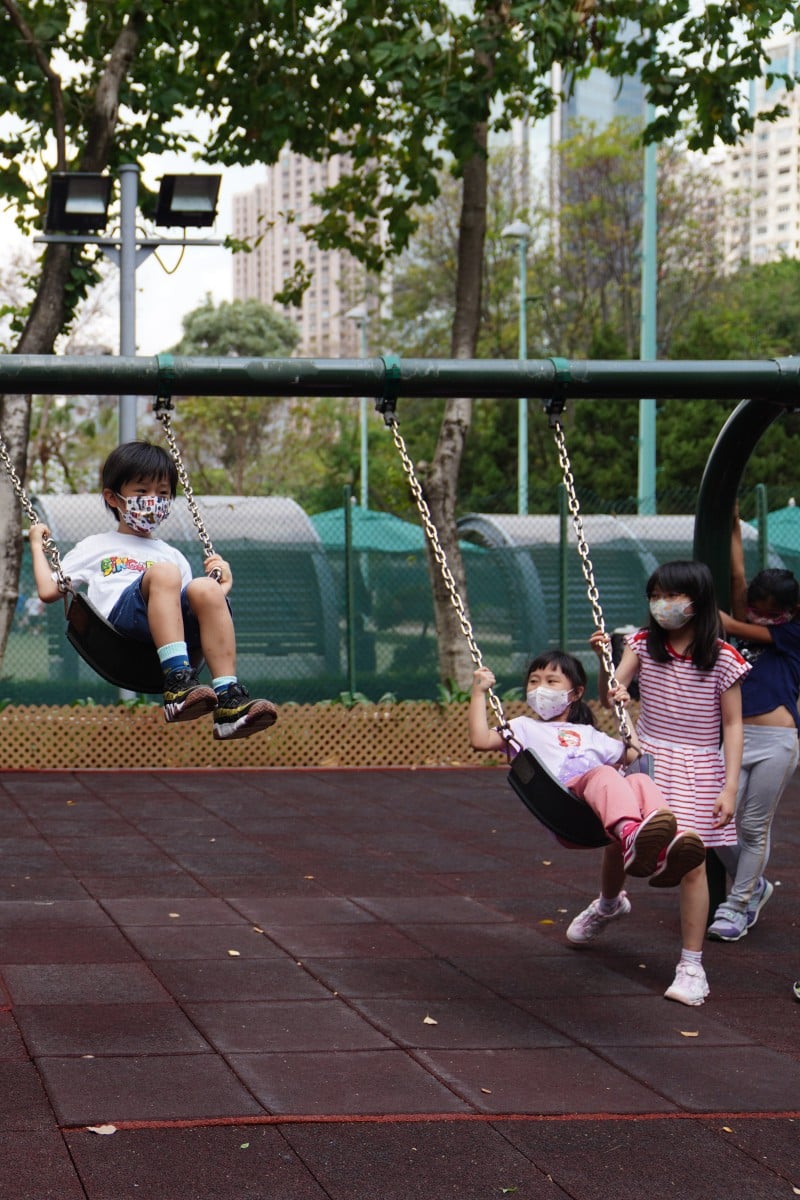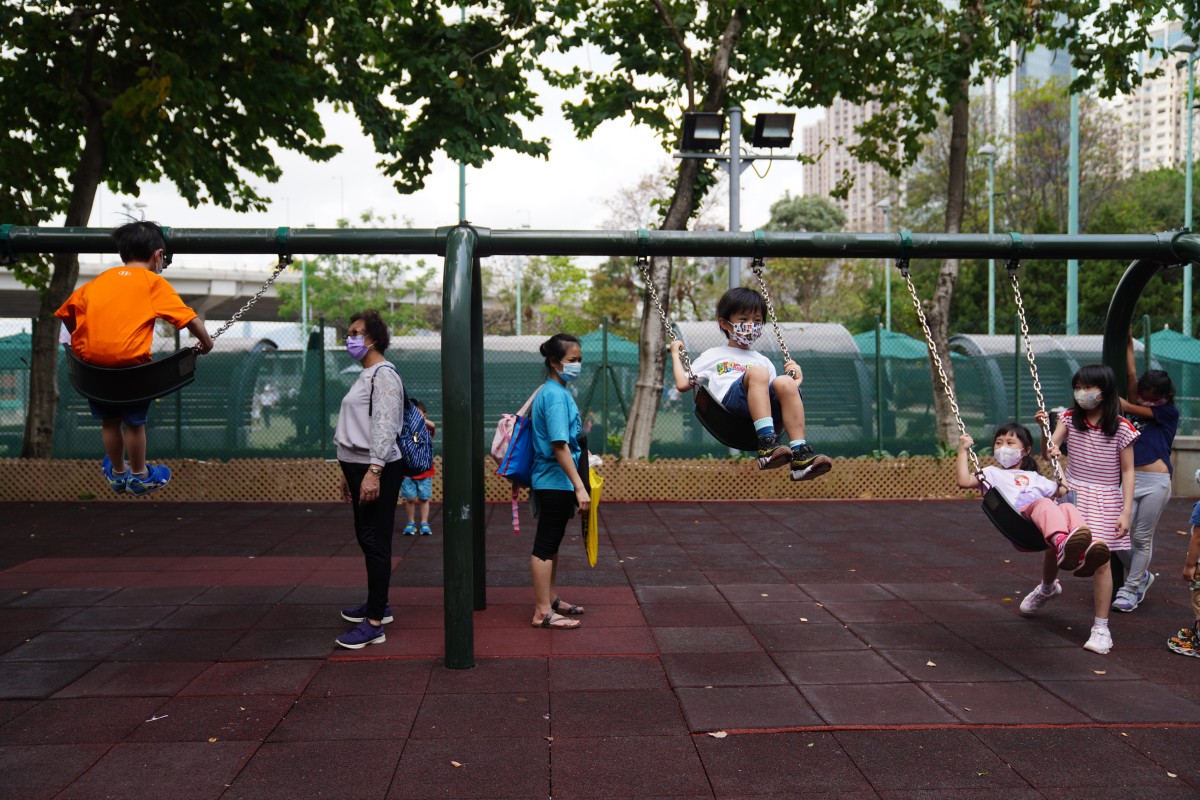
Why do children fare better than adults against Covid-19? A new study says their immune system stops the virus earlier
- Young people have a more protective immune response that stops the virus early in the respiratory tract, before it can progress into a severe disease
- Kids should still get the vaccine when they can, because they can easily spread the virus to more vulnerable adults
 A new study suggests that children are able to fight off the coronavirus early in the upper respiratory tract, before it progresses deeper into the body. Photo: SCMP / Sam Tsang
A new study suggests that children are able to fight off the coronavirus early in the upper respiratory tract, before it progresses deeper into the body. Photo: SCMP / Sam TsangSince the start of the coronavirus pandemic, health experts have offered many theories explaining why children fare better than adults against Covid-19.
Some thought kids were less likely to come into contact with the virus as schools closed. Others hypothesised they might not have a specific molecule essential for the virus to attach to host cells.
But a new study found children are largely able to avoid severe disease because a natural part of their immune response stops the virus early in its tracks, according to researchers at the Albert Einstein College of Medicine, Montefiore Health System and Yale University, both in the US.
Lack of symptoms means kids could spread Covid-19 easier
“What our data would suggest overall is that they have a very robust, innate immune response and our belief is that it seems to be protective (and) stop the virus at first encounter,” said study co-author Dr. Kevan Herold, professor of immunology and internal medicine at Yale University.
The study, published Tuesday in the peer-reviewed journal JCI Insight, involved 12 children and 27 adults seen at the Montefiore Medical Centre emergency department who tested positive for Covid-19.
Researchers used nasal swabs for RNA sequencing and found children had higher levels of genes associated with immune cells compared to adults. They also found several protective cytokines, which are proteins secreted by immune cells.
FYI: You can still spread the virus even after getting the vaccine
None of the 12 children in the study required oxygen, while seven of the 27 adults did, and four of them died.
The report follows another study conducted by the same authors and published in September that compared blood samples from paediatric and adult Covid-19 patients. Although researchers found little difference between the blood samples, they found clues that indicated they would find what they were looking for in nasal swabs.
Based on the two studies, study authors say children have a strong, innate immune response that stops the virus early in the upper respiratory tract without allowing it to progress into severe disease.
Dividers are set up on each individual student's desk to maintain social distance as children in Hong Kong return to school. Photo: SCMP/ Winson Wong
Meanwhile, adults may have to rely on a slower, adaptive immune response that’s triggered later in the disease’s progression.
Although children may have a natural immune response to fight off infection, Dr. Betsy Herold, chief of the division of paediatric infectious diseases and vice chair for research in paediatrics at Albert Einstein College of Medicine and Montefiore Health System, and co-author of the study, says it’s still important for them to get vaccinated. Pfizer’s vaccine with German partner BioNTech is now authorised for 16 and 17-year-olds, and vaccines for younger children are expected later this year.
How to get the vaccine when you’re afraid of needles
Having an innate immune response to the coronavirus doesn’t fully protect children from getting sick, she warns. And although they’re unlikely to develop severe disease, children can still transmit Covid-19 to more vulnerable adults.
Kids who aren’t vaccinated also run the risk of developing multisystem inflammatory syndrome in children, a rare but dangerous syndrome that causes intense bodily inflammation and can damage the heart, kidneys and other organs, Betsy Herold added.
“Having both a really good innate immune system based on their age, combined with adaptive immune responses from the vaccine, is going to put them in the best place they could ever hope to be and really is going to help us get rid of this pandemic,” she said.